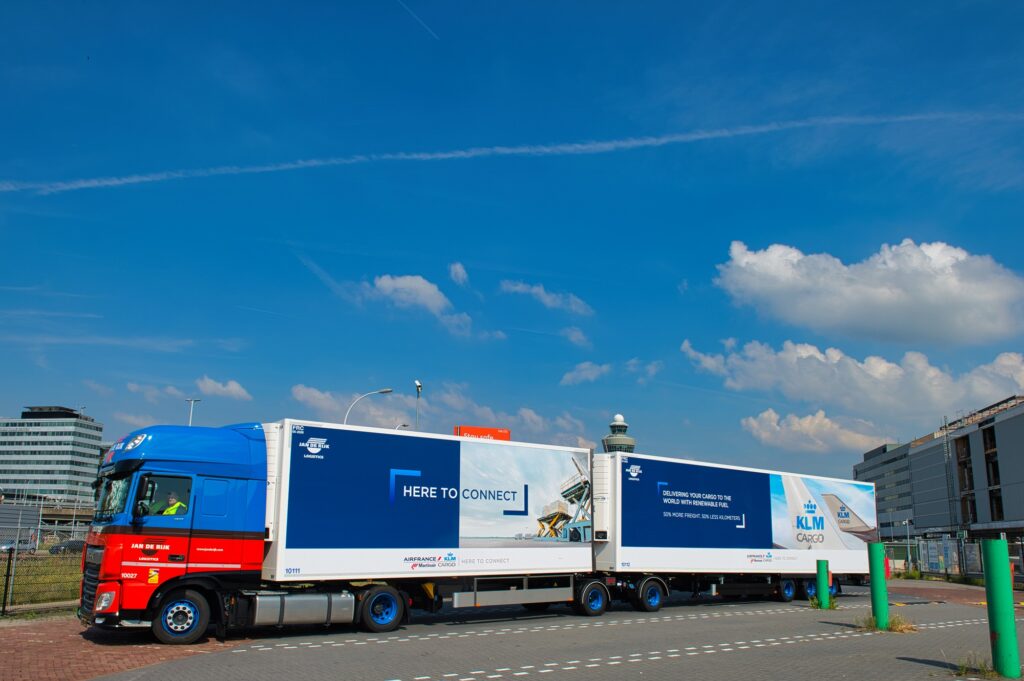AFKLMP Cargo introduces more sustainable transport
3rd November 2022

Air France KLM Martinair Cargo (AFKLMP Cargo) and Jan de Rijk Logistics have joined forces to take a new Long Heavy Vehicle (LHV) into operation. This completely new truck combination will run on BioFuel – Hydrotreated Vegetable Oil 100 (HVO100).
The big advantage of using an LHV is the huge volume of cargo it can carry. An LHV can carry six unit load devices (ULDs) at a time, whereas a normal cargo carrying vehicle can only take four. This means that using an LHV for two trips saves an entire truck trip, therefore substantially reducing CO₂ emissions as well.
The new LHV will be used exclusively on the route between Amsterdam Airport Schiphol and Frankfurt am Main. This strategic choice stems from the high cargo volumes carried on this route. Within AFKLMP Cargo’s extensive network, Frankfurt, like its Dutch home base Schiphol, is one of AFKLMP Cargo’s larger cargo hubs.
Adriaan den Heijer, EVP Air France KLM Cargo & Managing Director Martinair, said: “To achieve greater sustainability, we in the logistics sector are especially aiming to forge alliances to promote innovative and effective solutions. I’m therefore extremely proud of our partnership with Jan de Rijk Logistics in creating this sustainable combination of an LHV powered by HVO, specially developed for air cargo. This initiative contributes towards our goal of reducing CO₂ emissions further.”
Fred Westdijk, CEO Jan de Rijk Logistics, added: “We’re extremely proud of AFKLMP Cargo for being the first airline to join us to invest in further reducing CO₂ emissions. Jan de Rijk Logistics has actively promoted the use of Long Heavy Vehicles (LHVs) and Hydrotreated Vegetable Oil (HVO) in recent years and is pleased to welcome AFKLMP Cargo as a ‘first mover’. Now that the first airline has joined us, we hope that others will follow soon to reduce the impact on our climate.”
Jan de Rijk Logistics and AFKLMP Cargo have already carried out several projects together in their long history. AFKLMP Cargo and Jan de Rijk Logistics both invested in developing the LHV specifically for air cargo. Both parties have prioritised making the logistics chain more sustainable. Taking the LHV into operation therefore marks a significant milestone.
The structural deployment of an LHV means fewer trips and therefore reduced CO₂ emissions. What’s more, the LHV will be powered by a different fuel. This new fuel, HVO (also known as “blue diesel”), can reduce CO₂ emissions by as much as 89%. At present, the combination of an LHV powered by HVO is unique in transporting (air) cargo by road and, in the short term, it represents the best viable solution for more sustainable transport.
AFKLMP Cargo and Jan de Rijk will continue to take initiatives directed at achieving further sustainability throughout the logistics chain. Examples here include the development of electric truck combinations and the use of hydrogen as a sustainable fuel.

